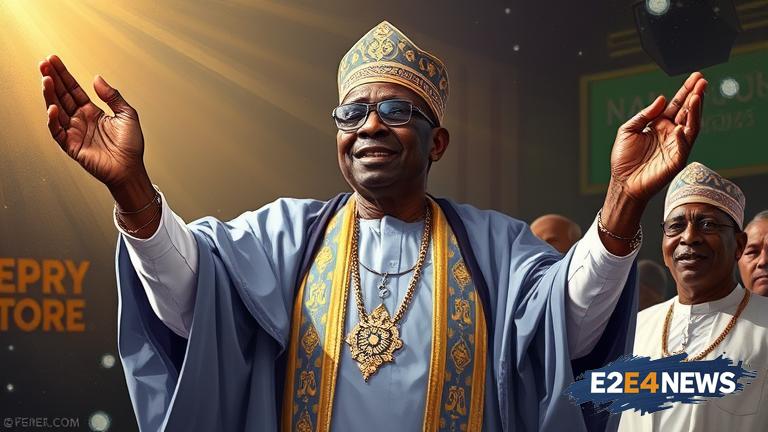In a recent statement, Bola Tinubu, the President of Nigeria, has attributed his victory in the 2023 elections to the blessing of the Awujale of Ijebuland. According to Tinubu, the Awujale had assured him that he would win the election and go on to secure a second term in office. This claim has sparked interest and debate among Nigerians, with many questioning the role of traditional rulers in the country’s political landscape. The Awujale of Ijebuland is a highly respected traditional ruler in Nigeria, and his endorsement is seen as a significant factor in the political fortunes of candidates. Tinubu’s statement has been interpreted by some as an attempt to curry favor with the traditional ruler and the people of Ijebuland. Others have viewed it as a genuine expression of gratitude and acknowledgment of the Awujale’s influence. The 2023 elections were marked by controversy and disputes, with many opposition candidates rejecting the results. Despite this, Tinubu was declared the winner and has since been inaugurated as the President of Nigeria. The country is still grappling with the aftermath of the elections, with many calling for reforms and improvements in the electoral process. Tinubu’s claim of divine intervention has added a new dimension to the debate, with some arguing that it undermines the democratic process. The role of traditional rulers in Nigerian politics is a complex and sensitive issue, with many arguing that they should remain neutral and apolitical. However, others see their involvement as a necessary aspect of the country’s cultural and social fabric. As the country moves forward, it remains to be seen how Tinubu’s administration will navigate the complex web of traditional and political interests. The Awujale’s blessing, as claimed by Tinubu, has raised questions about the nature of their relationship and the extent to which traditional rulers can influence political outcomes. Despite the controversy surrounding the elections, Tinubu has vowed to work towards uniting the country and addressing the numerous challenges facing Nigeria. The President has also pledged to prioritize the welfare and well-being of all Nigerians, regardless of their political affiliations or backgrounds. As the country embarks on a new era under Tinubu’s leadership, many are watching with keen interest to see how his administration will deliver on its promises and address the pressing issues facing Nigeria. The international community is also observing the situation in Nigeria, with many calling for stability and democratic consolidation in the country. With the 2023 elections now behind us, attention is shifting to the future and the prospects for Nigeria under Tinubu’s leadership. Only time will tell if the President’s claim of divine intervention will have a lasting impact on the country’s political landscape.
